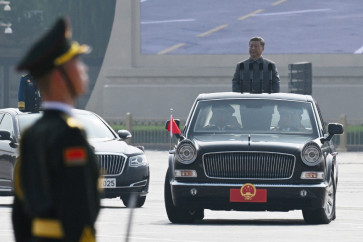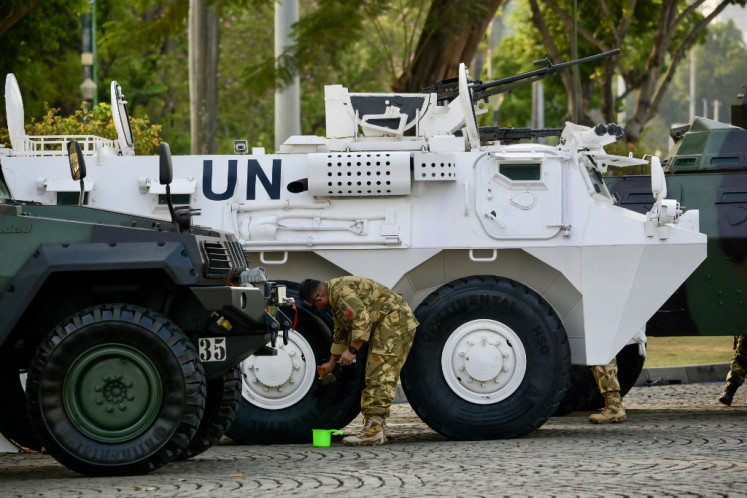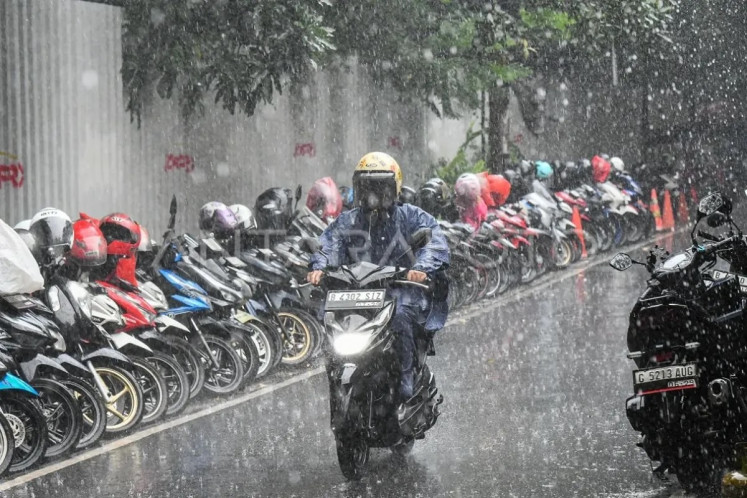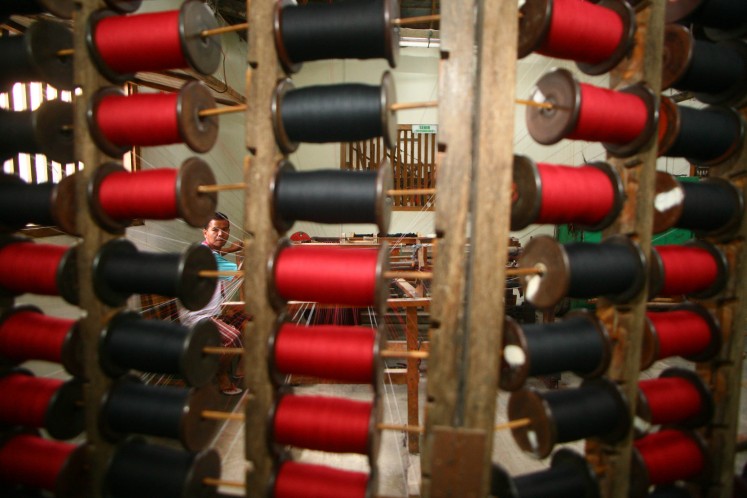Popular Reads
Top Results
Can't find what you're looking for?
View all search resultsPopular Reads
Top Results
Can't find what you're looking for?
View all search resultsDarryl McDaniels: Passion for rappin'
A portion of Run-DMC
Change text size
Gift Premium Articles
to Anyone
A portion of Run-DMC. A solid stature. A lot to say about hip-hop.
"Hip-hop does good for everyone it touches," Darryl McDaniels, or DMC, said recently at the Axis International Java SoulNation Festival 2009, accompanied by his sidekick DJ Charlie Chan nodding in agreement. "Hip hop is healing. It can take you out of depression. It can cure cancer."
A big call. But he's a legend. He should know.
He said hip-hop could heal almost any condition because of its ability to provide moral support, especially through its lyrics.
"We're the voice for people who can't speak for themselves."
Building dialogue between the artist and the public is a core part of hip-hop, according to the music meister.
"Hip-hop is the only thing on the face of this earth that brings people together and puts people's political and religious differences to one side."
He said hip-hop had the ability to unite people regardless of who they were.
"Whether someone lives in Beverley Hills in a US$24 million mansion or in the ghetto, hip-hop is the only thing that gets two people to sit down at a table and understand each other."
McDaniel's philosophy began about 30 years ago when he began rapping at age 12 in the South Bronx, New York, in the US, with a bunch of other rappers around his age.
Little did he know he and his peers were about to take rapping to a new level. Along with DJs Joseph "Run" Simmons and Jason "Jam-Master Jay" Mizell, he had formed what came to be one of the greatest legacies of hip-hop, Run-DMC.
Known for creating a new type of music, a crossover of rap and rock, the group didn't take long to create its first smash hit, their first single, "It's Like That/Sucker MCs" in 1983, which reached No. 15 on the weekly US' Billboards Top R&B/Hip Hop Album chart. In 1984, the trio released their first album, the self-titled Run-DMC. By this stage, their unique music style had spread around the globe.
"Rock *n' Roll and hip-hop are brother and sister," he said of their innovation. "Rock is the old jeans and the old boots. And hip-hop is the new jeans and the new shoes."
Upon the release of its third album in 1986, Raising Hell, making it to No. 1 on the R&B/Hip Hop Album chart, the band was reaping success.
After its peak, life became arduous for the hip-hop pioneer, at least on a personal level. By the early 1990s, McDaniels was drinking copiously and slid into a dangerous depression, which was said to have been a consequence of touring and greatly missing his wife and child. He was also diagnosed with a larynx disorder, spasmodic dysphonia, a neurological disorder involving involuntary movement of the larynx.
But his challenges didn't stop there. Inspired to turn his story into an autobiography at 35, he discovered he was adopted when researching his family history. Around this time, he turned to the church and began to change the focus of his lyrics.
"I used to write songs that were about me and how great I was.
"Now my songs are more about life and my personal experiences *cause I know people are going through the same things."
Being a role model is something DMC is pretty committed to. In 1996, he was presented with the Angels in Adoption Award for his work in foster care from US-based NPO, the Congressional Coalition on Adoption Institute, which raises awareness about children who need supportive homes.
He also founded The Felix Organization, which aims to enrich the lives of those who are growing up without their birthparents.
In addition, he's keen on setting the truth straight about gangster rappers to youths.
"The whole gangster rap scene is so clich*.
"The bad thing about *gangster rapping* is when artists start rapping about how they're gangsters because they're thugs - and they shoot this - and they do drugs," he rapped.
"The bad thing is that kids who love hip-hop look at these guys and say, *wow - so this is what I've got to be'. But you don't have to be that guy, you got to be you."
He added they're aren't any "real" gangsters in hip-hop anyway.
"*Real gangsters* are either in jail or they're dead. So if they tell you they're hip-hop artists, they're lying to you.
"And gangsters don't go putting their business out there for the world to know about if you know what I'm saying."
Another element DMC avoids in his music is content that demoralizes women.
"There are so many bands that are disrespectful to women, you know, with lyrics like, *I smack dat bitch' and *I slap you ho around'.
"They put all this negativity out there. But Run-DMC wanted to reverse those messages."
The current hip-hop industry appears to be disillusioning for him on another front.
"The industry has completely changed. It used to be exciting, filled with a whole spectrum of sounds and ideas."
Encouraging artists to challenge themselves he said, "Now, everybody's the same. Records are the same. Producers are the same. Beats are the same."
He said when hip-hop was in its prime there was healthy competition. The bands of the day competed with each other to improve.
"See, when we came along, we created a problem," he said about artists who rapped over disco and punk music.
"When we started rapping from something new, rock *n' roll records, rappers looked at us and said, *we're in trouble now so we gotta go home and create something better'."
But Run-DMC would go home and aim to create something better again. "All this competition was evolution," he concluded.
The band remained a solid force for 20-odd years, but when Jam-Master-Jay was murdered in 2002, some would say the era had ended. Even so, people continued to listen to its records, fans demanded best-hit albums and DMC kept making music.
With his Checks, Thugs and Rock N Roll album on store shelves and numerous tours, such as the recent SoulNation Festival and a Europe tour set for 2010, McDaniels keeps hip-hop going strong.
"It's a force to be reckoned with." He stands up, folds his arms and sticks his chest out.
What a mass of charisma.










